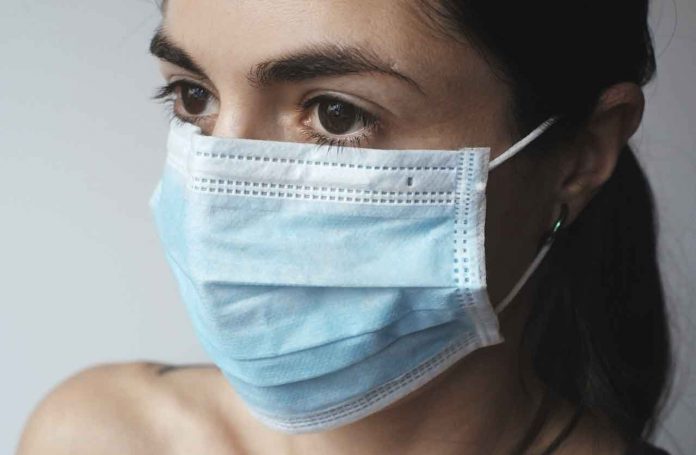The COVID-19 pandemic is now dubbed as the world’s “most pressing uncertainty” by many experts. Coronavirus disease, formerly called the 2019-nCov or 2019 novel coronavirus, has been causing financial blow and economic crisis in almost every country these days.
The outbreak has been disrupting the global supply chain, waylaying workers in affected areas, lowering labor supply, and the list goes on. Despite being on the move and alert, almost every nation’s government isn’t sure how to deal with the current threat. All of these “uncertainties” had resulted in increased volatility in the global financial markets.
Those were the overall nation’s economic views amidst the coronavirus outbreak. But how does this economic uncertainty affect the mass? Listed here are just a few of the money-related concerns over the current pandemic.
Potential Infection after Handling Cash
A British resource reported that, according to the World Health Organization (WHO), the coronavirus could “potentially” settle on banknotes for several days. In this article, WHO claimed that this might be one of the “possible” causes of the pandemic. But the chance of getting infected by the coronavirus from handling cash is low.
The article also stated that WHO advised people across all the countries to go for payments that require no human contact. If digital transactions aren’t attainable, always wash and sanitize your hands after handling cash. However, WHO later denied this report, yet it is still advised the said preventive measures be done.
This report reached countries like China and South Korea, where infection rates are high. Said countries’ governments have been disinfecting public places, including banks. Banknotes are sterilized through high temperatures and ultraviolet light, then sealed and isolated for two weeks before going back into circulation.
The Bank of England has acknowledged the possibility that bills could carry the coronavirus but didn’t take preventive steps similar to China and South Korea. On the contrary, the Centers for Disease Control and Prevention or CDC (the US leading national public health institute )and Federal Reserve (the central banking system in the US) ensure American citizens that COVID-19 only spreads through person-to-person contact.
Cash Flow
Infected workers are required to be in quarantine for at least two weeks or more, so they can’t go to work. However, not all countries have laws securing workers with paid sick leave. Being out of work for weeks, not to mention suffering from the virus, can be a solid financial hit that many workers can’t afford.
Moreover, even if the business owner isn’t diagnosed with coronavirus, the business may still experience dramatic reductions in revenues. People are advised to stay at home and do social distancing as preventive measures against the virus. Consequently, foot traffic on commercial establishments will eventually decrease, which in turn, translates to lost sales.
The good news is many policymakers are stepping in to relieve this financial crisis. In the US, the federal government is recently weighing paid sick leave and payroll tax cuts. A quarter of American workers, especially the low-income ones, don’t have paid sick leave, according to the Bureau of Labor Statistics.
Let’s say the US administration would consider the aforementioned economic relief measures. Still and all, these soon-to-be paid sick and tax-cut policies wouldn’t cover other knock-on effects caused by the pandemic, which include the cost of child care and health insurance security. The same goes for other countries.
Rock-bottom Rates
Many big banks around the world have been recently cutting the rates paid to their loyal savers. Last week, the Federal Reserve rate was slashed by 0.5%, which was followed by the Bank of England, which cut their base rate to as low as 0.25%, the lowest level on record.
In the US, the Federal Reserve announced that they’re expecting to cut interest rates to zero next week or sooner. This occurrence was surprisingly the first emergency interest rate cut in the United States since 2008. This didn’t even happen during the global economic crisis caused by the severe acute respiratory syndrome (SARS) outbreak last 2003.
As a result, cash savers stand to suffer further. Supposedly, savers opt for easy-access deals, as the term implies, to access finances during uncertain times, like the current pandemic. However, considering the rock-bottom average rates on easy-access accounts, savers are losing out on this financial option and getting a lesser return on their savings.
If you’re badly concerned for your savings, call a professional. Credit providers and other financial institutions are now accessible online, so you don’t have to go out and risk yourself to the virus. For instance, Wealth Advice is one of the online financial advisers in Singapore. You can check their services online here https://wealthadvice.sg/.
Takeaway
Manufacturing companies will have no choice but to pause their operations if the outbreak is not contained. This will significantly affect the supply and demand for goods in the market. Consequently, it’s expected that everything might increase in price if the demand is high, yet the supply is too low.







